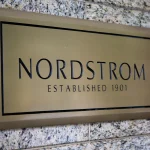Galt Investments on Tuesday became the second stakeholder to say it will vote against Everlast Worldwide Inc.'s $146 million buyout offer because it believes the price for the boxing equipment maker is too low.
Galt owns about 4 percent of the New York company's stock.
On June 1, Hidary Group offered $26.50 per share for the company. Aquamarine Capital Management LLC, which owns 2.3 percent of Everlast stock, said June 4 the offer was too low.
At the time, the offer was 14 percent over the previous day's trading price. It is a 5 percent discount to Monday's closing price.
In a note to the Everlast board dated Tuesday, Galt said an auction should have been held in order to maximize the value of any sale.
“In particular, we believe that the board of directors did not contact logical strategic buyers, such as Adidas, Nike , Puma, Under Armour Inc. or others, and instead took an un-shopped, lowball bid from a buyer affiliated with a current Everlast licensee,” wrote Jeff Lick, managing member of Galt.
The full letter follows:
Gentlemen:
We are writing as the holders of approximately 4.0% of the outstanding capital stock of Everlast Worldwide Inc. to express our concerns and objections regarding the proposed sale of Everlast to The Hidary Group. We believe that Hidarys current buyout price of $26.50 per share significantly undervalues Everlast, and therefore we intend to vote our shares AGAINST the Hidary buyout. Furthermore, we are even more concerned about possible breaches of the Board of Directors fiduciary duties due to the inadequate or total absence of an effective sale process . We also take significant issue with the actions that Everlast CEO and Chairman of the Board, Seth A. Horowitz, has taken since the announcement of the sale. His actions could be construed as a conscious and deliberate attempt to prevent a higher bid by another party, even though in our view most reasonable business people would agree that a far superior bid would emerge if a proper auction process were to be conducted.
No Meaningful Sale Process
We are extremely troubled by the Board of Directors agreement to sell Everlast apparently without conducting an auction or any other meaningful process designed to obtain the highest price reasonably available for Everlasts stockholders. Given the Hidary bid is an all cash bid, once the decision was made to sell Everlast by the Board, the only relevant consideration was and is price. We believe that it is generally accepted that the best way to maximize value, especially in a scenario where price is all that matters, is by running a transparent and all-inclusive auction process. Which raises a significant question in our minds: Why didnt the Board of Directors run an auction or actively take other measures to get the best possible price, as their fiduciary duties mandate?
In particular, we believe that the Board of Directors did not contact logical strategic buyers, such as Adidas (Deutsche Boerse, ADI), Nike (NYSE: NKE), Puma (Deutsche Boerse, PUM), Under Armour, Inc. (NYSE: UA) or others, and instead took an un-shopped, lowball bid from a buyer affiliated with a current Everlast licensee. Again, because the over-whelming majority of current Everlast shareholders would be completely cashed out and receive no financial benefit from whatever becomes of Everlast after a sale, price is the only issue. Now that the decision to sell has been made, obtaining the best possible price for Everlast is the Boards principal fiduciary responsibility. While it is true that if Nike or another strategic buyer were to acquire Everlast, it might significantly alter the operations and management team of the current company, those possibilities warrant no consideration when the only goal, and the Boards clear duty, is to get the highest price.
An Inadequate “Go Shop” Provision and the Actions of Seth A. Horowitz, Board Chairman
We recognize that the Hidary merger agreement contains a so-called “go shop” provision. However, we firmly believe that a limited 30-day go-shop period for which the Board effectively committed $3 million to obtain (due to the multi-million dollar termination fee that must be paid if a better buyer is found during the “go shop” period) is no substitute for having performed a thorough auction process in the first place. These facts make us question whether the Board fulfilled their clear duties and responsibilities as fiduciaries to obtain the best price reasonably available for Everlasts stockholders.
We are and were particularly dismayed at the recent announcement that Seth A. Horowitz, Everlasts President, Chief Executive Officer and Chairman, entered into a voting agreement on behalf of himself and his fathers estate, committing to vote 785,874 shares of Everlast stock (representing approximately 19.2% of the shares outstanding) for the Hidary transaction and against any competing transaction. Further, in what we consider to be a highly unusual move, it appears that Mr. Horowitz has locked his shares up for a full year beyond the date the Hidary merger agreement is terminated, even if a better buyer comes along. What is also interesting is that it appears the one year lock up agreement only applies to Mr. Horowitzs personal shares and not those represented by his fathers estate, for which Mr. Horowitz is the trustee and a fiduciary.
An important question must be raised, why would Mr. Horowitz do this? In its recitals, the voting agreement states that it was executed “as an inducement and in consideration for” Hidary entering into the merger agreement. Curiously, the voting agreement is dated three days after the date of the Merger Agreement, and also was executed after stockholder opposition to this transaction began to surface. A simple question must be asked: If the Hidary merger agreement was executed three days earlier, how can signing the voting agreement possibly be consideration or an inducement for Hidary to sign a merger agreement they had already signed? Notwithstanding the curious circumstances and unclear motivations surrounding this highly unusual move, we believe that Mr. Horowitzs actions could significantly limit the possibility that a topping bid will surface or succeed, particularly when he simply did not need to do it.
We are left wondering how sincerely and actively are Everlasts management and Board pursuing a higher bid during this very short go-shop period when the actions of Everlasts President, CEO and Chairman are entirely inconsistent with, and in fact may impede, that goal?
We are hopeful that the Board of Directors, consistent with its clear fiduciary duties, is actively and tirelessly trying to improve upon the Hidary price, and have authorized and directed its financial advisors to attain that goal. We believe that anything less renders the “go shop” provision entirely illusory and of no real benefit to Everlasts stockholders.
Whose Interests Are Being Protected?
We also note that Mr. Horowitzs employment agreement was amended on two separate occasions in the days preceding the announcement of the Hidary buyout. Those amendments were publicly characterized as correcting “an inadvertent omission . . . regarding the timing of certain payments” and to delete a provision “limiting certain payments following a change of control.” While we cannot comment on the accuracy of these characterizations, it is quite clear that the personal impact of a change of control on Mr. Horowitz was specifically addressed and the provisions in his employment agreement were carefully refined in the last few days before the Hidary buyout was announced, at a time when Mr. Horowitz and the other Directors should have been focused entirely on obtaining the highest price reasonably available in a sale of the company.
Finally, we would also be concerned if the Hidary transaction contemplates that existing management will participate in the equity of the private company if the buyout is in fact completed. We expect that Everlasts proxy statement will address any such arrangements in detail, and we eagerly await your disclosure on that front.
Hidary Buyout Shortchanges Everlast Stockholders
Notwithstanding all of the concerning issues discussed above, the $26.50 price contemplated by the Hidary buyout is simply way too low.
The Everlast brand is one of the oldest and highest profile athletic brands in existence, and is certainly one of the most recognized global brands, not only in boxing, but in sports and sports lifestyle in general. In fact, in one of our first conversations Mr. Horowitz stated that it was his opinion that it would take many years and many more advertising dollars than Everlasts then current enterprise value of roughly $120 million to replicate Everlasts global brand recognition. We agree that building such a powerful brand from scratch would cost much more than the inadequate Hidary buyout price, and believe that the Hidary buyout does not properly compensate Everlast stockholders for Everlasts enormous brand value and goodwill alone.
Since November 30, 2006, Everlast has raised its revenue and EBITDA guidance on three different occasions. The high end of revenue and EBITDA guidance has gone from $55 million and $10.8 million, respectively, to $60 million and $12.4 million. This represents a 15% increase in EBITDA and remarkably, more than a 100 basis point improvement in EBITDA margin in just six months. This is Everlasts own guidance, not Everlasts actual results, which have routinely exceeded guidance. In addition, thus far in 2007, Everlast has signed four new license agreements, including a master agreement for China, signed an agreement with USA Boxing and begun testing concept shops in Dicks Sporting Goods stores. Also, in the first quarter of 2007, Everlast improved its equipment business gross margins by 990 basis points from 20.6% to 30.5%. Gary Dailey, Everlasts CFO, has also stated that in his view 40% equipment gross margins are obtainable within the next year. Clearly, Everlast has operational momentum, and based on these positive trends and developments, we believe is at the beginning of a significant growth phase.
Based on what we anticipate to be 20% revenue growth in 2007 and 2008 and continued margin improvement, it appears quite reasonable to us that Everlasts 2008 EBITDA could surpass $20 million. Two public market comparables we would point out as bracketing an upside case and downside case for Everlast are Under Armours public offering in 2005 and the recently announced sale of K2 Inc. (NYSE: KTO) to Jarden Corporation (NYSE: JAH). In the case of Under Armour, their initial public offering was priced at 14 times EBITDA. In the case of K2, a struggling, low growth sporting goods equipment business, Jarden paid 10.25 times EBITDA to acquire them. It would be difficult to argue that Everlast should be valued at a multiple less than K2.
Assuming what we consider to be a reasonable 2008 EBITDA projection for Everlast of $20 million, 4.4 million fully diluted shares outstanding and $25 million in net debt, the Under Armour and K2 valuation metrics imply that Everlasts share price would reach a range of $58 to $40.90 in one year, or perhaps even better. We believe, based on current trends and the many positive developments that Everlast has publicly announced, that $20 million in 2008 EBITDA is highly attainable and perhaps even conservative. Based on these numbers, clearly, Hidarys $26.50 offer does not even come close to adequately compensating Everlast stockholders for the true vale of their investment.
While we have the highest respect for managements accomplishments in reinvigorating the Everlast business and preparing it for what we believe will be a significant growth phase, we reiterate that the Hidary buyout shortchanges Everlast stockholders and is the product of a patently inadequate and improper process. We therefore encourage the Board to fulfill their clear fiduciary duties by aggressively seeking out buyers who will pay a full and fair price for Everlast, via a structured, transparent and all inclusive auction. Above all, once the decision was made to sell Everlast, the Boards primary duty and obligation is to get the best price reasonably available for the stockholders, and we strongly encourage you to do so.
Sincerely,
Jeff Lick
Managing Member















